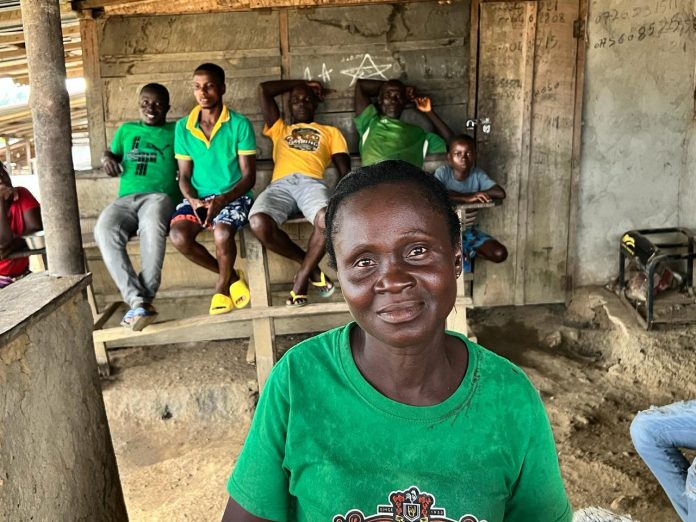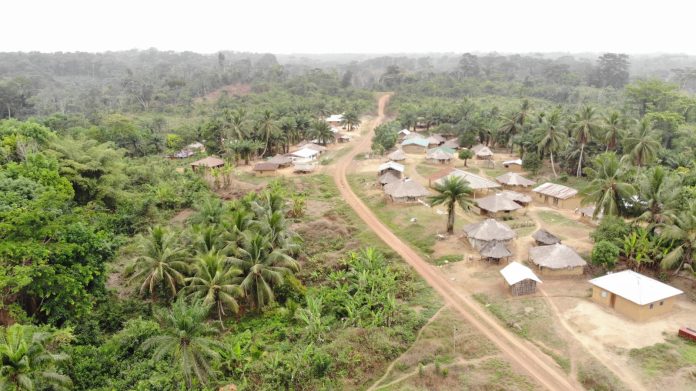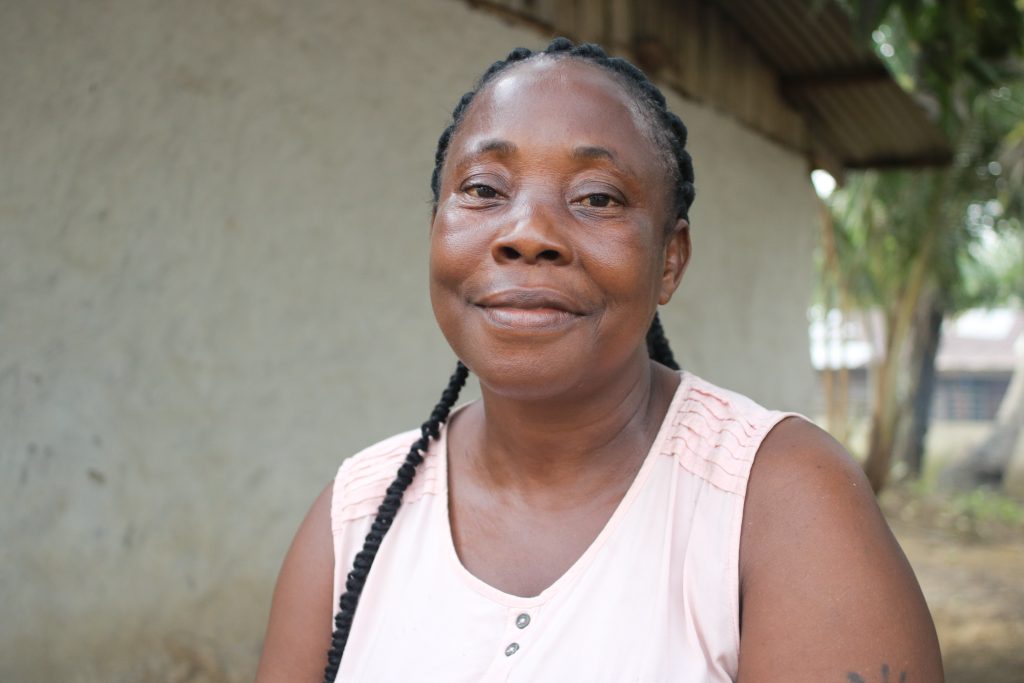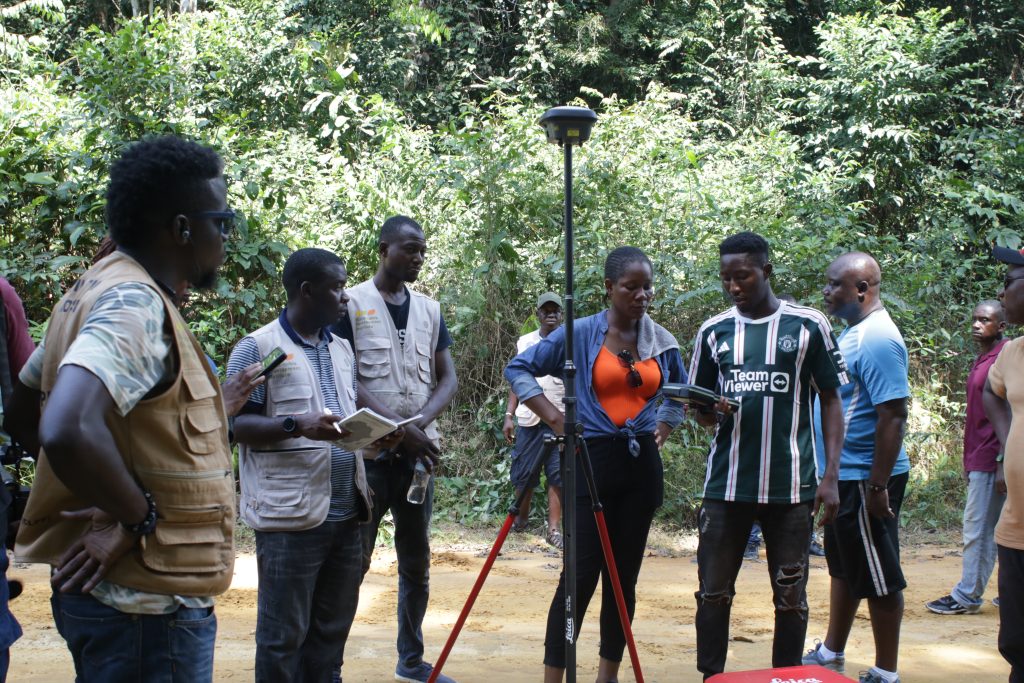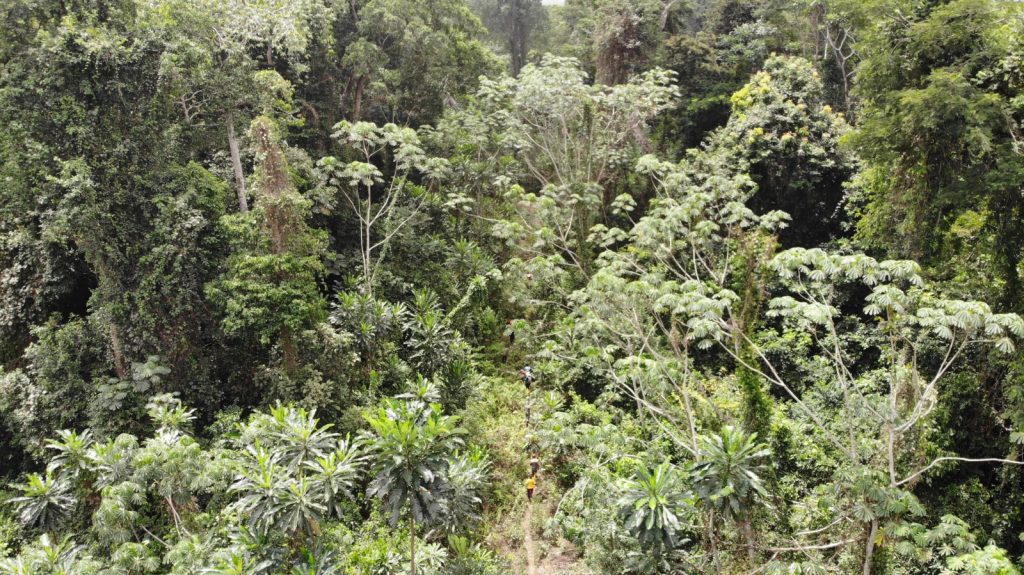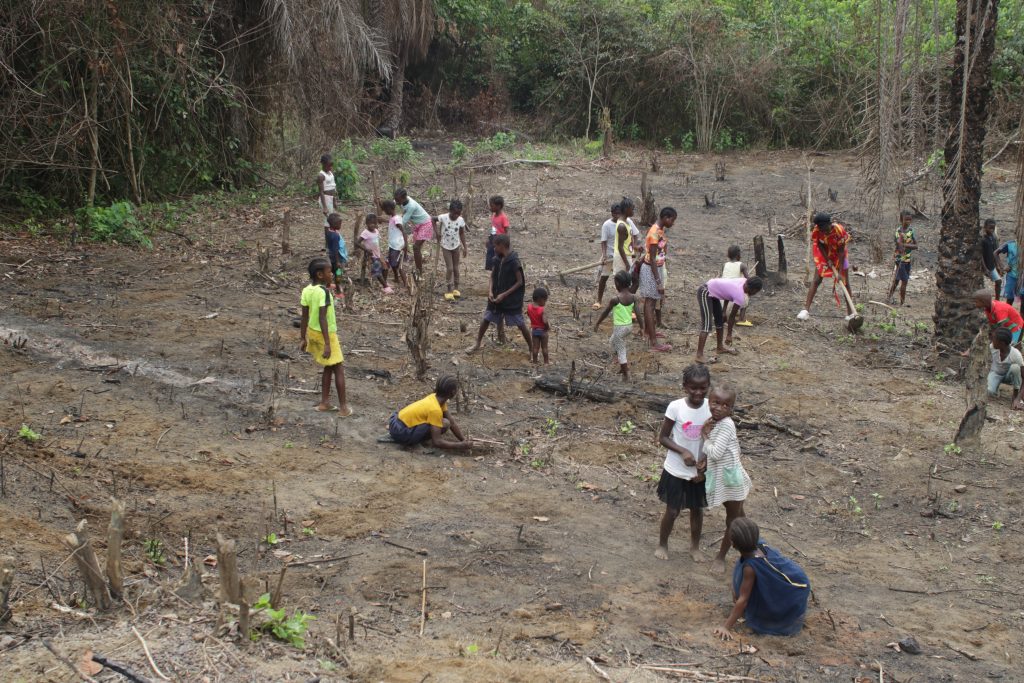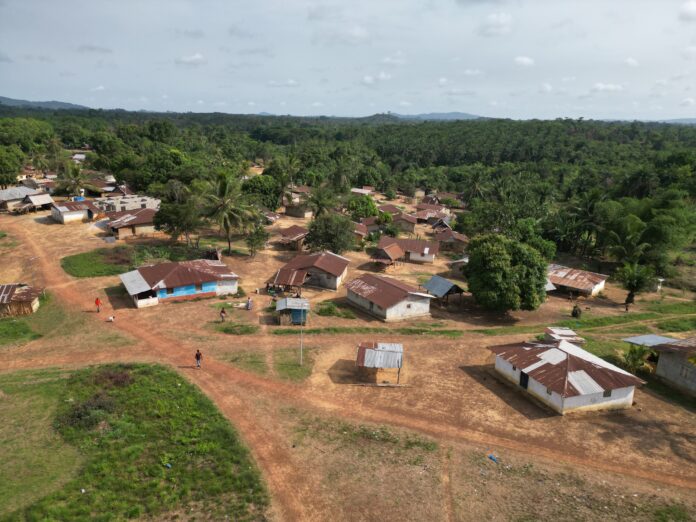Top: Theresa Wleh, Chairlady of the Diyenkpo community sitting with a smile and children in the back. The Daylight/Matenneh Keita
By Emmanuel Sherman
DIYENKPO, Sinoe County – Theresa Wleh lives with her four children in the home of her late husband. Not just that house, Wleh farms on the plot of her late husband’s farmland, and she is fully recognized by her in-laws.
“I am happy,” Wleh tells The DayLight in an interview in Diyenkpo, a Sinoe town on the border with Grand Kru. It is the headquarters of the Lower Bokon Clan located in the Jaedae District.
“The reason that I am happy is since [my husband died], I am still sitting down here. When you want to move me, my kids are here,” Wleh adds.
Wleh knows that things have not always been that way. Under a decade ago, women had no right to own community land or participate in ancestral land matters. Generations of ill-fated customs and traditions discriminated against womenfolk, often leaving them to their male relatives’ mercy. On the other hand, powerful chiefs and elders, who were the custodians of lands, decided on matters without women’s consent.
All that changed in 2018 when Liberia created the Land Rights Act, which granted women customary land ownership. The new law also mandates women’s participation in community land governance.
“I am happy for the government of Liberia to give women the right to own their land and have their deed. The land deed is important to us mothers and our children because when we leave tomorrow…, it is for your child or children,” Wleh says.
‘I used to feel bad’
Together with women’s landownership, the new law recognizes community land rights, based on local customs and folkways. It is the main highlight of the law, turning around decades of marginalization of rural people.
While communities own ancestral lands by law, they should go through legal requirements to get a deed. Lower Bokon is at the boundary-harmonization stage of those requirements, having identified as a landowning clan, created a land body and mapped its assumed 7,283-hectare landmass. Several communities have obtained customary deeds, including Zolowee, Gbassa and Zor-Yolowee in Nimba.
But Lower Bokon has to resolve a boundary dispute with Neeklakpo, a town in Grand Kru, for the Land Authority to present its deed.
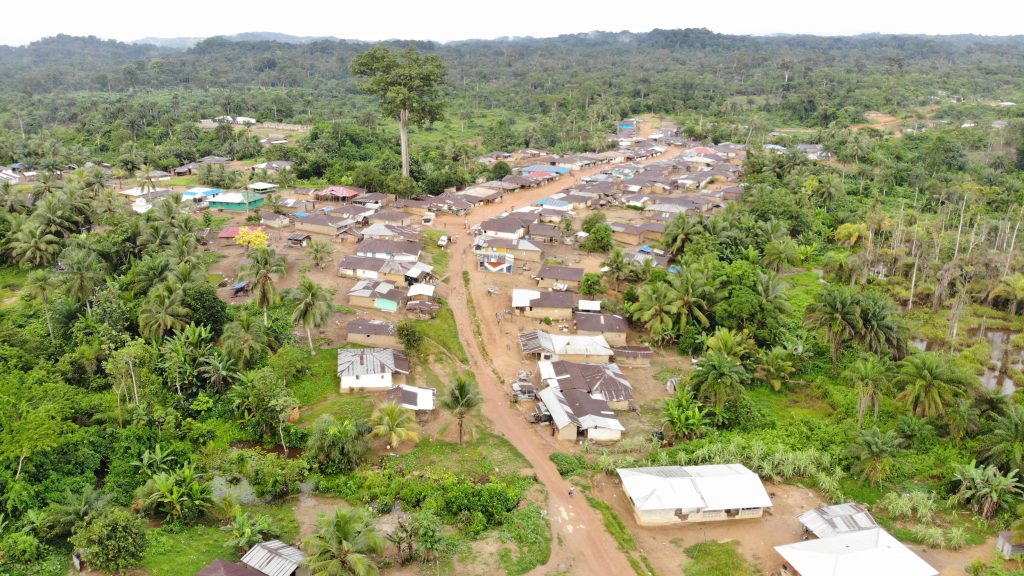
The Land Authority is working with other government agencies to resolve the dispute, according to Dr. Mahmoud Solomon, the Acting Commissioner for Land Administration. Solomon said the regulator was comparing data from those agencies, including the National Legislature, to determine the border points.
“We will soon resume to have it resolved amicably,” Solomon says in an interview at his Ashmun Street office. Bokon is one of the dozens of communities whose lands the Land Authority is formalizing as part of a US$3.45 million project funded by the International Land and Forest Tenure Facility in Sweden.
Wleh cannot wait for the disagreement to be solved. She wants to witness the resolution as it is in the interest of the community. But she does not allow the impasse to spoil her party.
“I am happy for us to reach this level. During our forefathers’ time, they were blind to the system. I used to feel bad when people came to use the land. At the time we never knew anything,” Wleh recalls. “Whatever they wanted to do was what they would do here.
“If we have our land deed, it will be good for us. Nobody will come and say, ‘This place is mine.’ As long as I have my deed and you are coming on my land, there will be an agreement between us,” she says.
Wleh might be a bit cocky but her comments are not unfounded.
Lower Bokon is situated in a mining region, with little or no benefits to affected communities. Hummingbird, a British company, has operated there since 2019, according to official records. The records show that the Ministry of Mines and Energy has awarded 127 licenses in the region since 2013, predominantly for small-scale mining. Of that number 17 are active licenses.
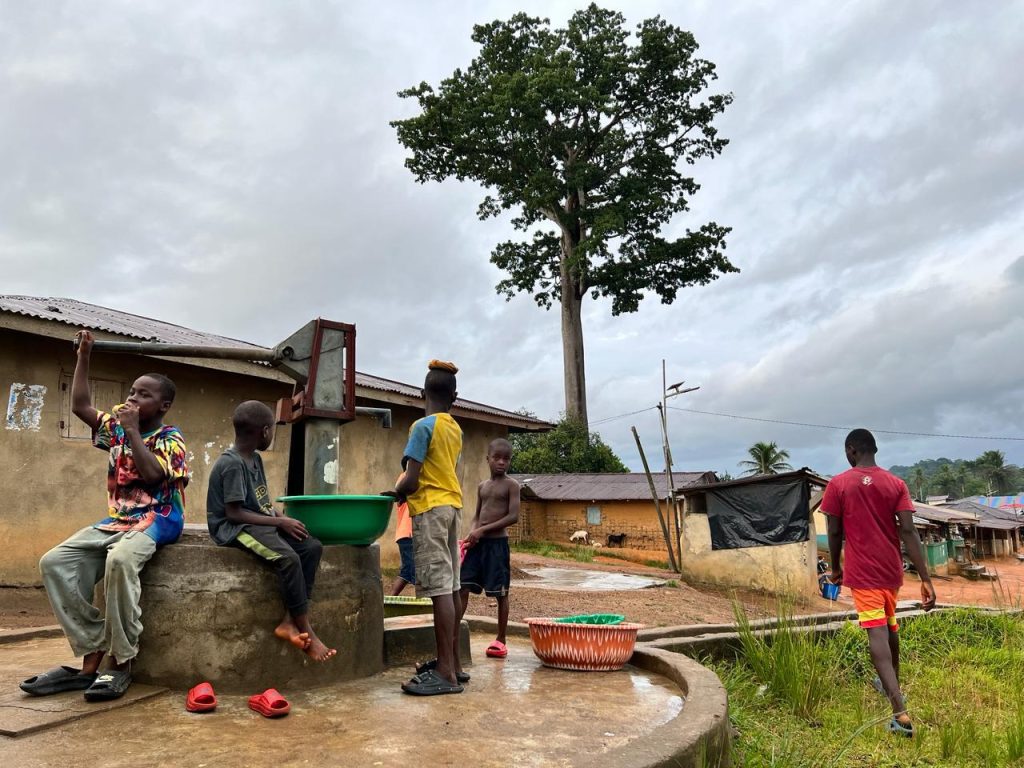
Despite these activities, the clan lacks a lot of necessities for its estimated 5,000 people. It lacks clinics, paved roads, and adequate water sources. Wleh and other Diyenkpo residents go to Karquekpo, the largest town in the region, for medication. The miners do not pay the clan anything.
The Land Rights Act empowers communities to buck that trend. With a deed, locals can enter into agreements with companies as parties to the investment, not just affected communities. They have the right to consent to or reject investment proposals.
“The kids we are having now, we want them to go to school so, that tomorrow we will benefit from them,” Wleh says. “When you come into our community and we tell you this is what we want and you cannot deliver, pack up your bag and leave.”

